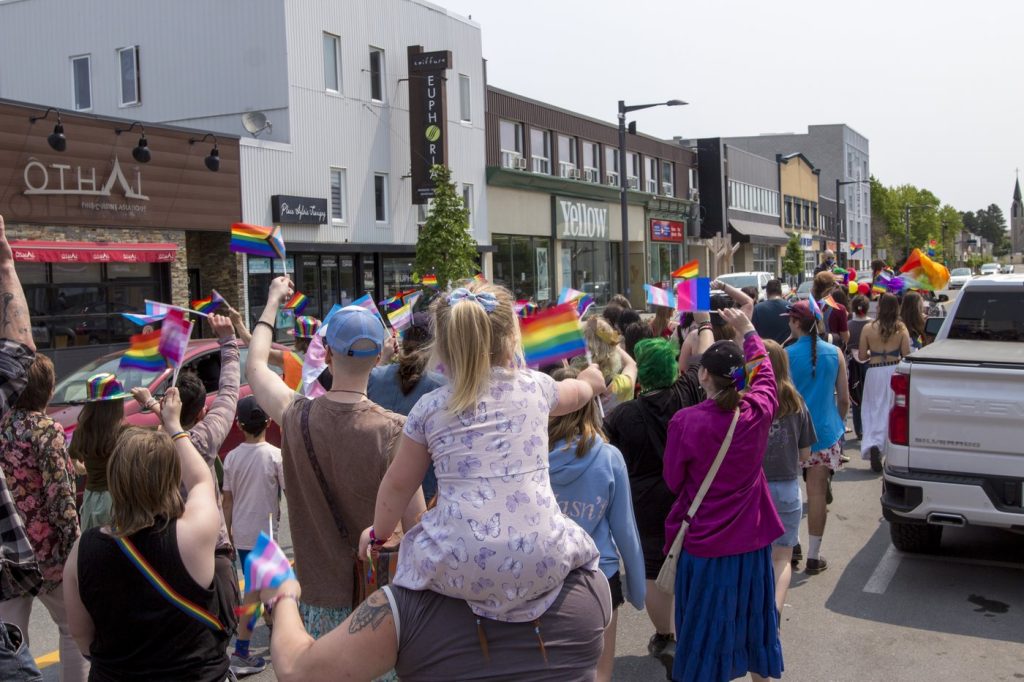MONTREAL In 2019, Pascal Lessard and his partner purchased a farm in the Chaudière-Appalaches region of Quebec, located south of Quebec City. Upon moving to this rural community, they were initially concerned about how the locals would react to their status as a same-sex couple. However, Lessard expressed happiness in having joined the community, stating, “We never had any problems when we arrived here. We didn’t hide, we didn’t try to hide who we were or that we lived together. We haven’t encountered any difficulties or people who reacted negatively.” Their positive experience is reflected in a growing trend of pride festivities emerging throughout Quebec, challenging the stereotype that rural areas are hostile toward individuals of diverse sexual and gender identities.
Lessard and his partner are part of Fierté agricole, an organization that encompasses over 300 LGBTQ+ individuals residing in rural areas and involved in agriculture. Established in 2012, this non-profit has been instrumental in fostering connections among LGBTQ+ individuals living in isolated conditions, which can often accompany rural life. Joé Desjardins, president of Fierté agricole and co-owner of JardinsRochers, emphasized the common feelings of isolation among rural LGBTQ+ members, although he noted a prevailing atmosphere of acceptance, with instances of homophobia or transphobia being infrequent.
Desjardins remarked, “People are afraid to come out or move to rural areas,” yet he reassured that conditions are not necessarily worse than in urban settings. He highlighted that allies play a crucial role in rural contexts, where anonymity is sparse. He stated, “A village that supports a member of the queer community is a village that will support all those people.” Fierté agricole actively educates communities about LGBTQ+ realities, setting up booths at agricultural events and visiting schools to raise awareness.
Camille Paradis, co-chair of Fierté Val-d’Or, echoed Desjardins’ views on the significance of allyship. Since its establishment in 2019, Fierté Val-d’Or has grown its Pride festival from approximately 600 to 2,300 attendees over six years, with 50 to 60 percent of participants coming from outside the LGBTQ+ communities. Paradis noted the importance of community support in fostering acceptance, stating, “It shows that we have a community that supports us.” Additionally, Paradis, who identifies as non-binary, highlighted the continued misunderstanding surrounding gender identities compared to sexual orientation. The festival focuses on bridging generational gaps for older LGBTQ+ members, serving as a supportive anchor for individuals facing isolation.
Other rural towns, such as Mont-Laurier in the Laurentian Mountains, have initiated pride festivals, with Mont-Laurier hosting its second event this year. Maxime Belisle, the president and founder of Fierté Hautes-Laurentides, articulated the aim to provide accessible resources in the region, fostering a welcoming environment. While the festival has faced some online backlash, the local population has largely embraced it, as evidenced by attendance at the inaugural Pride march, which gathered around 200 people. Belisle reported that attendees expressed satisfaction with the event, reflecting a community readiness to progress in improving quality of life regarding LGBTQ+ issues.
Overall, these initiatives in rural Quebec suggest a growing acceptance and support for LGBTQ+ individuals, opposing the notion that rural areas are inherently less welcoming than urban environments. Organizations like Fierté agricole and Fierté Val-d’Or are pivotal in cultivating a supportive atmosphere, demonstrating that even in less populated areas, community solidarity and allyship can thrive.











